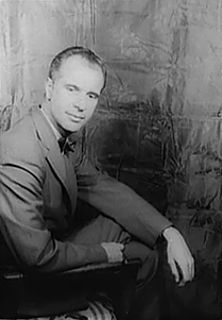A Quote by John Hersey
Journalism allows its readers to witness history; fiction gives its readers an opportunity to live it.
Quote Topics
Related Quotes
My readers are surprisingly mixed. I have conservative readers - for instance, women with headscarves - but also many liberal, leftist, feminist, nihilist, environmentalist, and secularist readers. Next to those are mystics, agnostics, Kurds, Turks, Alevis, Sunnis, gays, housewives, and businesswomen.
A reader is entitled to believe what he or she believes is consonant with the facts of the book. It is not unusual that readers take away something that is spiritually at variance from what I myself experienced. That's not to say readers make up the book they want. We all have to agree on the facts. But readers bring their histories and all sets of longings. A book will pluck the strings of those longings differently among different readers.
I respond very well to rules. If there are certain parameters it's much easier to do something really good. Especially when readers know what those are. They know what to expect and then you have to wrong-foot them. That is the trick of crime fiction. And readers come to crime and graphic novels wanting to be entertained, or disgusted.






































